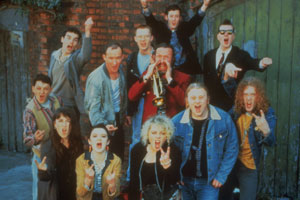The Commitments: Dick Clement and Ian La Frenais interview
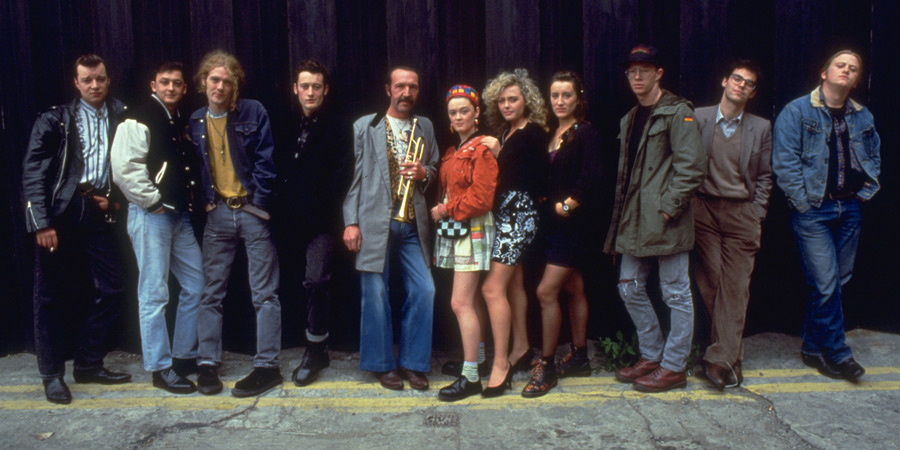
Marking the 25th anniversary of the hit film about a Dublin soul band and a special new DVD and Blu-ray release, we talk to scriptwriters Dick Clement and Ian La Frenais about the movie and adapting Roddy Doyle's novella.
How did your involvement in the film come about? Roddy Doyle had started adapting his book himself?
Dick: We were approached by Roger Randall-Cutler, who was the main producer, and he gave Ian the novella. He read it instantly, loved it; gave it to me, I loved it; and we said we wanted to be involved. Then something fairly unusual happened. We met a guy who said he was a Texas oil man and had a lot of money that had to be invested by the end of the tax year, and that he wanted to go into business with us making movies and TV shows. We said we'd like to do The Commitments.
Around this time we happened to be having lunch with [multi-Oscar, -BAFTA and Golden Globe winning director] Alan Parker. He asked what we were doing and we said we had this little book about a bunch of kids in Dublin wanting to form a soul band. He said "I like the sound of that, can I do that one?" It was that casual. So we brought him into the project.
Then the Texas oil man went south, turned out to be a bullshit artist, so we didn't have the money but we did have Alan Parker. We met Marc Abraham, who was just joining Beacon Pictures, who asked what we were doing. We said we were working on this project and Alan Parker wants to do it, and that's how Beacon became involved. So we were very involved in the setting up of the movie, which is not what we normally do.
What're your particular memories of making the film? Were you involved quite heavily beyond writing, on-set regularly?
Ian: It was all really odd. It was the first film Beacon made, in fact, and Alan's attachment helped get the film made. I think he was filming Come See The Paradise up in Portland, Oregon, when we went to see him after delivering the first script draft. From then on it was a 'go' project.
The funny thing is, when we thought we had all that oil money, it really boosts your confidence. You're out there in the world, not hustling and pitching and scrabbling around; you think "oh, we've got the money". Of course we didn't in the end, but it gave us the self-confidence to get things moving. And that's how we became associate producers on the film, too.
We never saw him again though, and he didn't pay our initial legal fees, which should've been a sign something was up.
Dick: It went on for a long time, the whole saga. He kept saying "tomorrow, tomorrow" and "it's coming".
Ian: We thought we were going to be rich.
Dick: Filthy rich!
Ian: Our wives started spending...
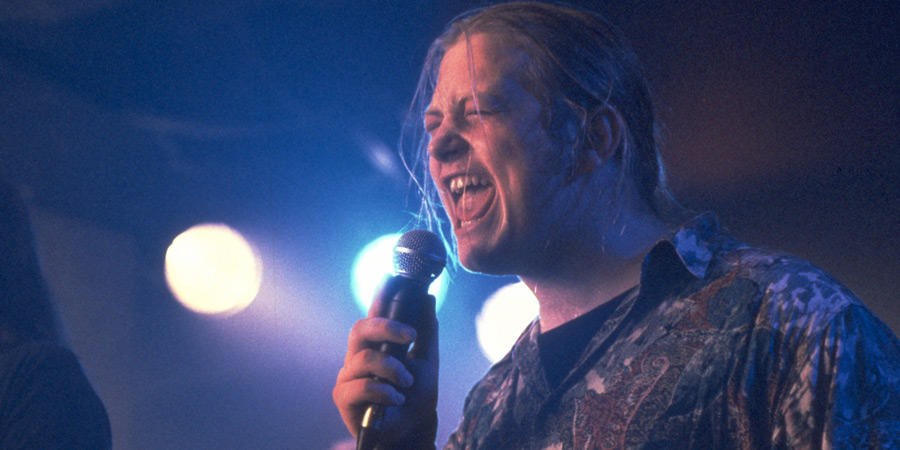
How involved were you once filming began? Did you step back, having finished your job, or were you on set and involved?
Dick: Not very much. The key involvement after writing the script was just before shooting. We went to Dublin for a read-through and we all sat round a table with this very young cast. We listened and made a mental note of which ones were better actors than the others. We could then take a couple of lines away from some of them and a few more to some of the others.
We also noticed that, due to some oversight, we all fancied Maria Doyle (Natalie Murphy) but that nobody in the film seemed to find her the least bit attractive. Everyone was after Angeline Ball (Imelda Quirke), so we thought "that's not right" and stood the thing on its head. Knowing the way the world works, where it's women who set their sights on the men rather than the other way round; so we thought Maria's character should actually fancy Jimmy Rabbitte (Robert Arkins).
Ian: The biggest rewrite was due to Andrew Strong, who was cast as lead singer Deco. We'd written him as a good-looking guy, a ladies' man. Alan came to us and said "if the audience are going to believe in this band, that they could actually make it, then it has to be through the singer", and he'd found this kid with an incredible voice who was nothing like the character, so we re-wrote it. Re-wrote the character completely to accommodate Andrew. And what an asset he was!
His voice at the front of that band. Oh. And that album - the soundtrack album sold an incredible number of copies. And you still hear it! I go into a supermarket or something and still hear a song from the soundtrack playing. I wish we'd had a piece of the album revenue!
And the songs were all classic soul covers, weren't they?
Ian: Yes, they were. Alan had such a vast catalogue to choose from, so if one we wanted was too expensive to licence - like Marvin Gaye's I Heard It Through The Grapevine, they wanted a fortune - we just said 'pass'.
Dick: Alan made up a list of all the songs he liked as candidates for the movie and there were about 60 of them. He put them on cassettes and I remember we drove around Ireland listening to them going "yeah, I like that one" and "no" to them, whittling it down to about 15 songs. And he took great care in choosing which ones to use.
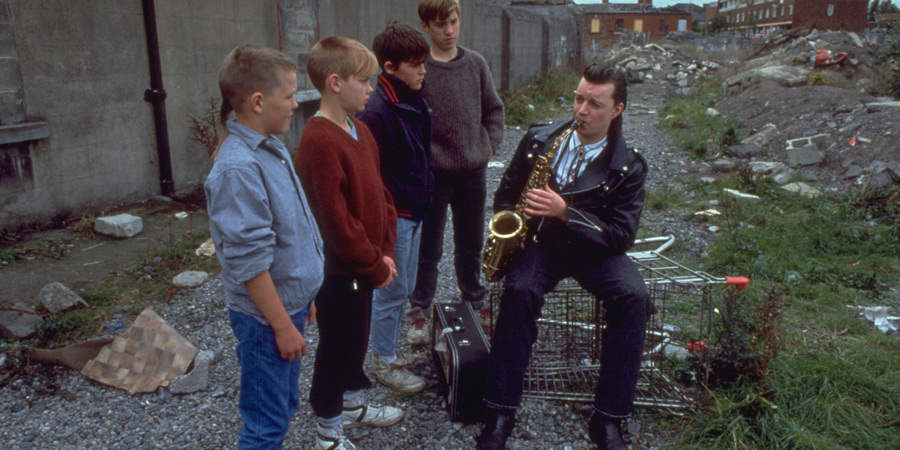
Do you have any other particular memories of making the film?
Ian: It was just fantastic. Enormous fun. I've never enjoyed a film so much. Being in Dublin, meeting all the kids, then seeing the film and the premieres we had - all the trips. New York, LA. There was an enormous amount of alcohol consumed launching that film! It was enormous fun, yes.
Dick: There was a moment at one of the parties, I think in LA, where it was all going really well and then we had the real Wilson Pickett come in to sing with the guys. That was an awesome moment. Just great.
Ian: The other thing we remember, there's a scene in the film where they need to drive a chip van to get to their next gig, but none of the kids had a driver's licence! We were saying "Who can drive? We'll give you the lines!"
When we went around Dublin - oh it was another city back then. When Alan, Dick and I went around for locations; they were scary. They were no-go areas. The looks we got. People thought we were CID or probation officers. The north side of Dublin was very poor. And it was astonishing to think of the comparison with America, the thought that kids of that age didn't have a driver's licence.
Dick: It was interesting, Alan specifically wanted unknown actors. I think that's what gave the film real authenticity and believability. There were no known-faces bringing baggage to the film. But there was a certain amount of pressure to cast someone known as Joey the Lips, the older member of the group. They talked about Bob Hoskins and about Van Morrison doing it. But Alan was very insistent, saying "If I have a name there it will damage the authenticity of the whole film", so he stuck to his guns and cast the wonderful Johnny Murphy. I think part of the reason the film worked so well was because you really believed in them, that bunch of kids.
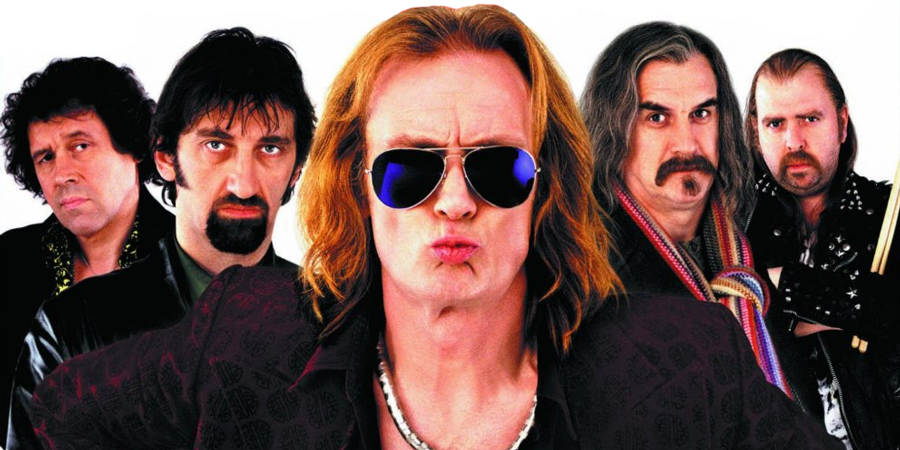
Seven years later, you made Still Crazy (pictured). That's almost The Commitments in reverse; is there any direct link between the two films?
Dick: Yeah, you're right. There is a link. We love music movies - Still Crazy is one of our favourites actually - and there's not a direct connection but ...
Ian: Well we're trying to get together another music movie at the moment. And if we do get it together, we'll say it's the third of a trilogy. The Commitment was about aspiration; Still Crazy was about reconciliation; and this one will be about relevance. But let's see what happens. It's so hard.
Where is that bullshit man with the millions ready to inject us with confidence?!
But yes, we did a film about a band who were young and on the rise, and then one about a band who reunited after 20 years.
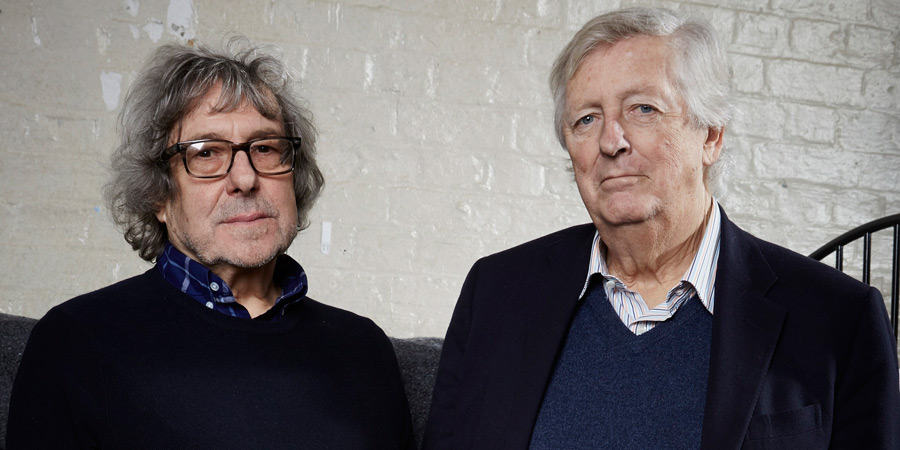
You've a long track-record of films - from Otley to Water and onward - but are still best known (in the UK at least) for your sitcoms. What's do you prefer to write? What's the most satisfying?
Dick: Well if you write a sitcom that works, people laugh. That's very satisfying. But a movie that works is equally satisfying. Obviously there are a lot in between that have problems of one kind or another! But I think we enjoy doing both.
Ian: We do. In the present climate, there's so much great television, I think what we'd love to do is a limited series, a mini-series, drama. There are so many opportunities and so much good stuff - we want someone to say "you've got an 8-hour series for HBO". Oh my God, that would just be the best thing in the world, wouldn't it?
I'm actually just looking at a book we'd like to do. It's about America in the late 1960s - there's so much going on. Civil rights, Vietnam, protest marches: it's a fantastic period in American history. When we get back to LA we're going to try to see if we can advance that.
You've lived in LA since the early 70s, but seem to have been able to stay remarkably in touch with British - and Irish - society and popular culture. How do you manage that?
Dick: Well we don't feel we are in touch with it all the time! To be honest, when we first looked at The Commitments we said "we don't know if we can do it because we're not Irish", but we overcame that. I feel it's a bit like an actor preparing for a role. If you know you're going to write something you have to do some research, so when you are out of touch you have to get back in touch. You have to work at it.
Ian: We're not totally out of touch though. We're usually in Britain three or four times a year and although you have to have several projects always on the go, most of them are British-based at the moment. Three or four movies and a possible TV series; although that'll be European rather than specifically British based.
Of course, when we started and were researching it meant going to the library. Now it's a click of a mouse. Astonishing.
Dick: The other film we've just written is about the Hatton Garden jewel robbery. That's a very interesting situation because there's more than one screenplay floating around so there's a lot of competition. It's like being in a race. But we're rather fond of our script.
Ian: You've cost us 20 minutes...!
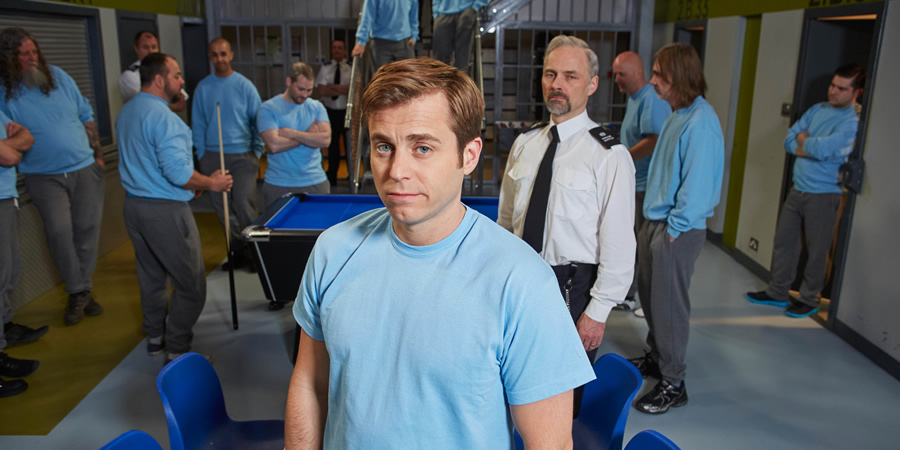
You recently revived your hit sitcom Porridge for a well-received special (pictured). What was that process like?
Dick: Well, it was just a lot of fun. They asked us to do it - they said we could do anything we wanted, redoing an old script perhaps, but we didn't want to do that and then very quickly came up with the idea of it being about Fletch's grandson and making it completely set today. Putting enough in to give the audience echoes of the old series, but we wanted it to be fresh.
We're rather pleased with the reaction so far; it's been very positive. We expected there to be one or two people - inevitably - saying "oh why do you want to visit this much-loved..."; you're bound to get a bit of that. When we brought back Auf Wiedersehen, Pet after a long time we were braced for the same reaction. There are always a few people who say "oh why couldn't you leave it alone?" But sometimes these things work, and we're very much hoping that a series will come out of it. That would be fun.
Ian: He was great, Kevin Bishop, wasn't he? Really, really good.
Dick: Kevin's also an extremely nice bloke, which doesn't hurt when you're doing a series! It's always nice to really feeling that you can get on with the actors.
And filming has just started on a brand new sitcom of yours for Gold, Henry IX?
Dick: Well we don't know if it'll be called 'Henry IX' or something else at the moment, we're still playing around with the title. We've cast a lovely guy in the lead, Charles Edwards, a fantastic actor. He's going to be terrific in the role, and it's just getting funnier and funnier.
It's been a long time, the whole process of casting it, and it was beginning to make us very frustrated. But now we're steaming ahead and it's very exciting. Charles is very funny!
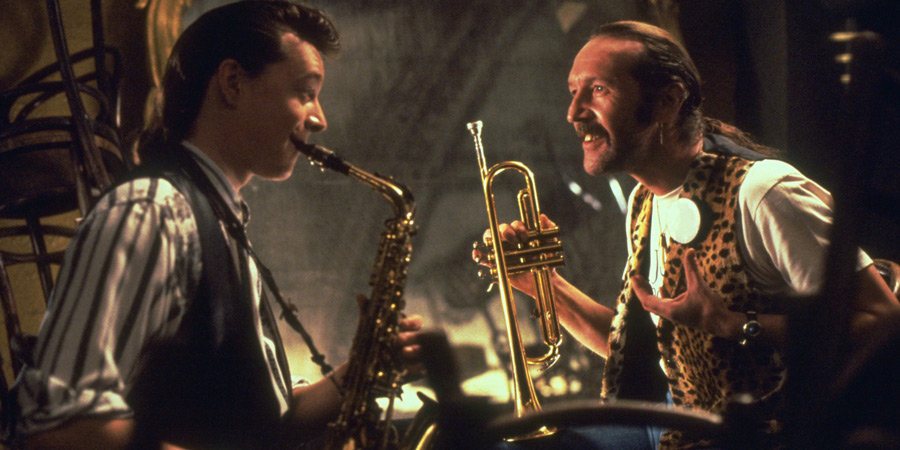
After 25 years, with this celebratory DVD and Blu-ray release coming out, do you have any final thoughts about The Commitments?
Ian: Oh I think we're both immensely proud of it. There are these great works around of Roddy's. It's definitely one of our favourite experiences and I think it's an excellent film. Alan Parker did an outstanding job, taking these really raw, untrained kids, and making this amazing cohesive movie. We show it sometimes if we're giving a lecture, we have a clips and people are always so pleased to see it, saying "oh I've got to go and see that again".
Dick: I think the film is still enormously fresh.
Ian: Yeah, it doesn't really date.
Dick: It doesn't really date, no. It feels really fresh and vital.
Ian: It's in part because the music doesn't date. That soul is timeless. If it'd been a pop band it'd just feel old-fashioned now. But we're just enormously proud of it, and it's held with such affection in Ireland, which is gratifying.
If Dick and I ever got into trouble in an Irish bar, we'd just say "we wrote The Commitments!" and they'd probably buy us a drink!
Dick: Johnny Murphy[/b] told us a story about being in a tiny little town in the west of Ireland. Suddenly there was panic and pandemonium, and masked robbers ran out of a bank having just robbed it. One of them froze on the pavement, took off his mask and, looking at Johnny, exclaimed "Jaysus, it's Joey the Lips!"
'The Commitments - 25th Anniversary Edition' is available on Blu-ray and DVD from Monday 19th September 2016, courtesy of RLJ Entertainment. Details

